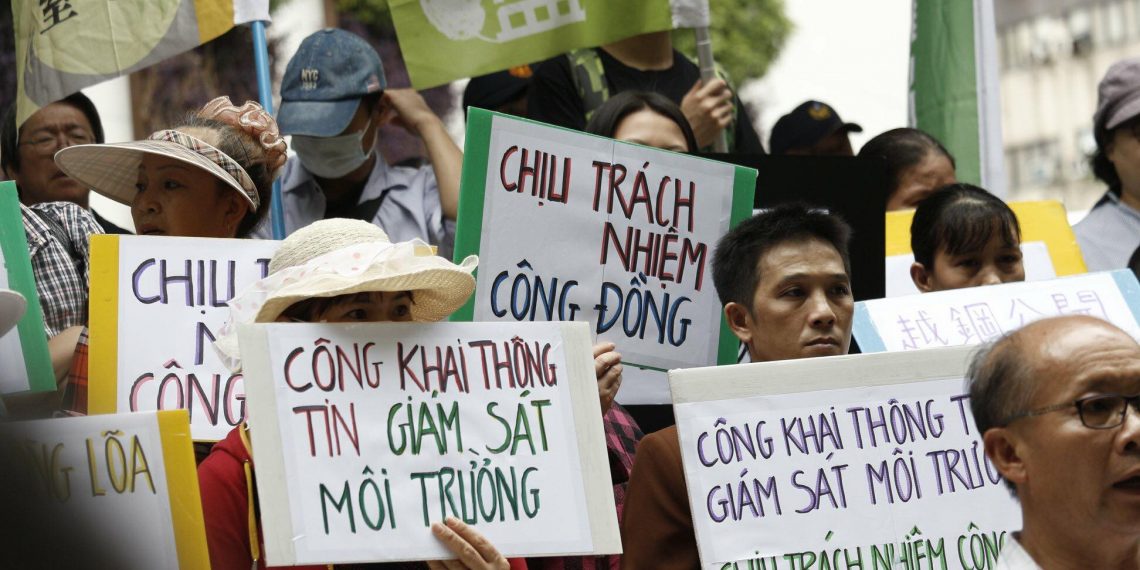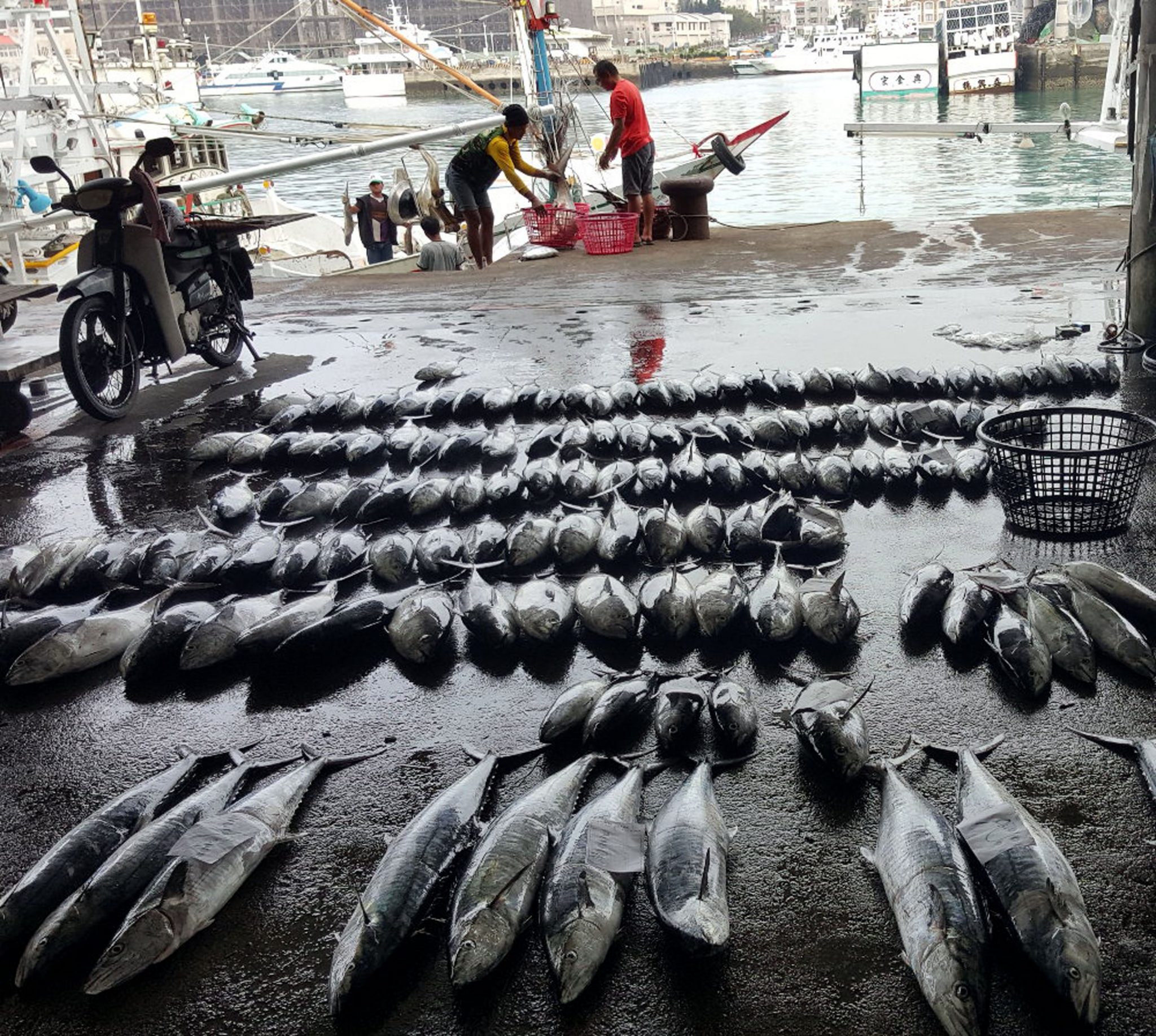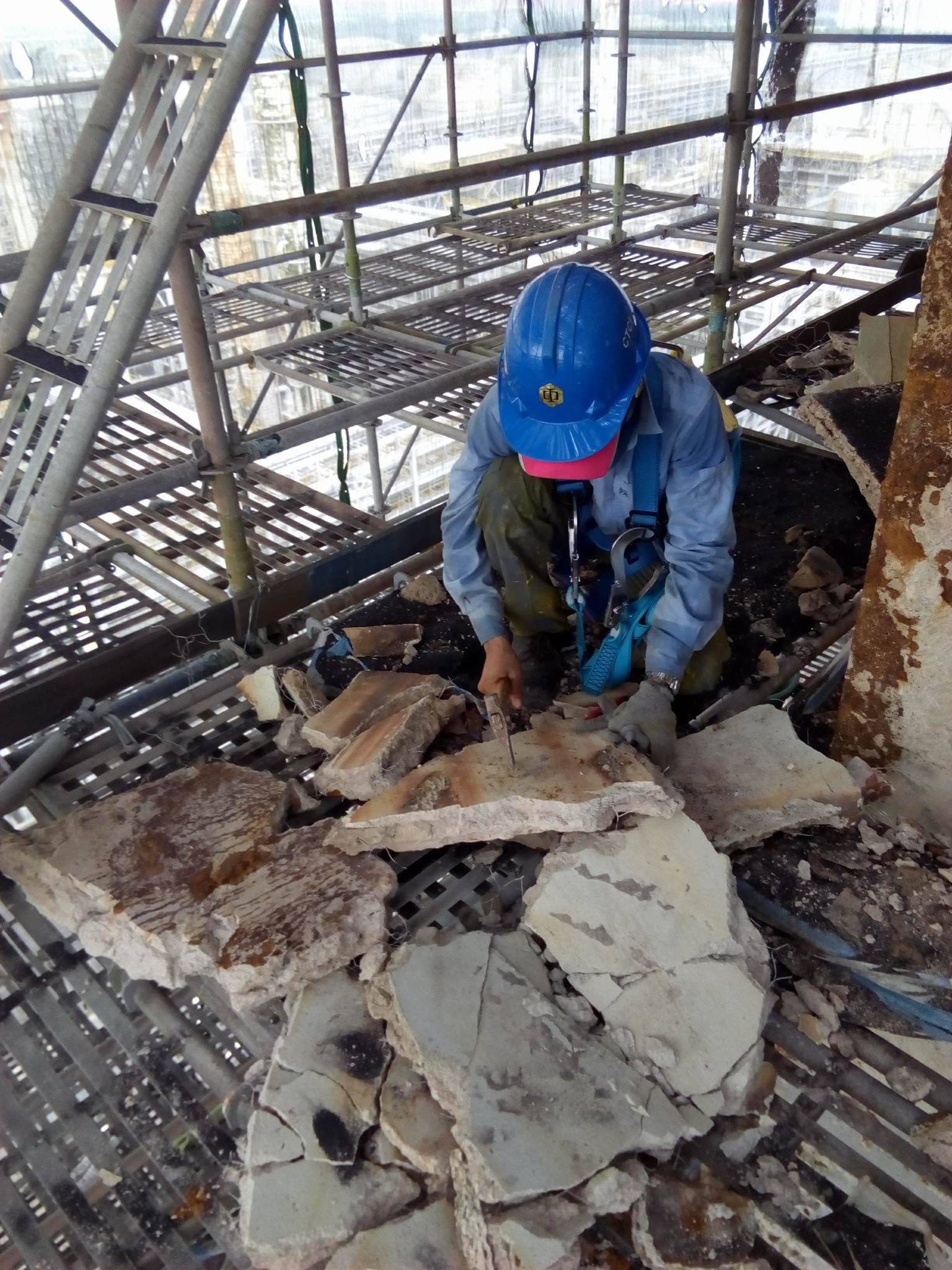Taipei, June 20 (CNA) Scores of Vietnamese expatriates in Taiwan and local activists staged a rally in Taipei on Wednesday, demanding that the Formosa Plastics Group take responsibility for the 2016 marine disaster caused by toxic industrial waste from its steel plant in Ha Tinh, Vietnam.
“Formosa Plastics, shoulder corporate social responsibility,” the protesters shouted outside Sunworld Dynasty Hotel in Taipei, where the company was holding its shareholders meeting.
They also demanded that Formosa Ha Tinh Steel Corp, which had suspended operations for a year in the wake of the disaster in April 2016, monitor pollutants in the marine environment and make the information public.
Formosa Ha Tinh Steel Corp in north-central Vietnam admitted in June 2016 that it was responsible for the pollution of some 200 kilometers of Vietnam’s coastline, which it said was caused by an accidental release of chemicals, including cyanide, in waste water during a test run of the plant.
The admission came amid waves of protests and after the Vietnamese government linked the company to the disaster, which included a massive fish kill along a coastal area that is heavily dependent on fishing and tourism.
At the time, Formosa Ha Tinh Steel Corp apologized and promised to pay US$500 million in damages but two years have passed and the residents of the area are still suffering the environmental, economic, psychological and political consequences of the disaster, according to the activists.
“I hope that Taiwanese people will be more concerned about the case and urge the government to press Formosa Plastics to deliver justice to the Vietnamese people,” a Catholic priest in Vietnam said in a statement that was read at the rally.
That was the appeal to people and government of Taiwan made by a priest who is based in Tinh Quang Binh, and three other people were barred by Vietnamese authorities from traveling to Taiwan to attend the protest, according to Nguyen Van Hung (阮文雄), a Vietnamese priest in Taipei who read the statement.
Many Vietnamese have been subjected to government oppression because they have expressed concerns about the disaster victims who have not received compensation, protested in the wake of the disaster, or posted information about it on the Internet, said Nguyen, who assists Vietnamese immigrant workers and spouses in Taiwan.
According to Chang Yu-yin (張譽尹), head of Taiwan’s Environmental Justice Association, it has become commonplace for protesters against issue to be put under surveillance and to be beaten, arrested, and charged with a heavy offenses, since Formosa Plastics paid US$500 million to Vietnamese government in compensation.
By analogy, Chang said that the US$500 million was “protection racket” by which the Vietnamese government protects the operation of the steel plant against its people’s protest even by having public security officers stationed on the plant complex to track dissidents.
Although the Vietnamese state media reported that most compensation was being paid to victims, Vietnamese and Taiwanese NGO activists have found otherwise.
Several Vietnamese told local NGOs that they suffered huge economic losses due to the disaster and received only a limited amount of compensation, according to a video interview screened in a discussion on the issue in Taipei Tuesday night.
Beyond compensation, Paul Jobin, an associate researcher fellow at the Institute of Sociology at Academia Sinica who visited the contaminated area earlier this year, said that what local people also care about is the quality of fish.
People are concerned about whether fish are safe to eat or contain toxic contaminants, he said, adding that the government hasn’t presented any proof about its claim of safety.
Formosa Plastics Group has the responsibility to ask the Vietnamese government to make sure that the money it paid in damage is given to victims, rather than executives of the Communist Party of Vietnam or local officials, he said.
He added that it’s also Formosa Plastics Group’s duty to ask the Vietnamese government to conduct toxicology and epidemiology study in a manner involving international teams so that the result can be trusted by its people.
At the company’s annual shareholders meeting, Echo Lin (林仁惠), a shareholder, spoke on the podium directly to Formosa Plastics President Jason Lin (林健男), that the company must take responsibility for the damage it has caused to Vietnam.
Holding the photos of the Vietnamese prosecuted by Vietnamese authorities for their involvement in actions against the steel plant, Echo Lin said that Formosa Plastics was “accomplice of the Vietnamese government in repressing Vietnamese people.”
Jason Lin offered no response to Echo Lin and the meeting was suddenly called off when the latter was still speaking. Formosa Plastics Group said it had no comments on the demands made by the protesters, when asked by CNA later Wednesday.
Source: Focus Taiwan







